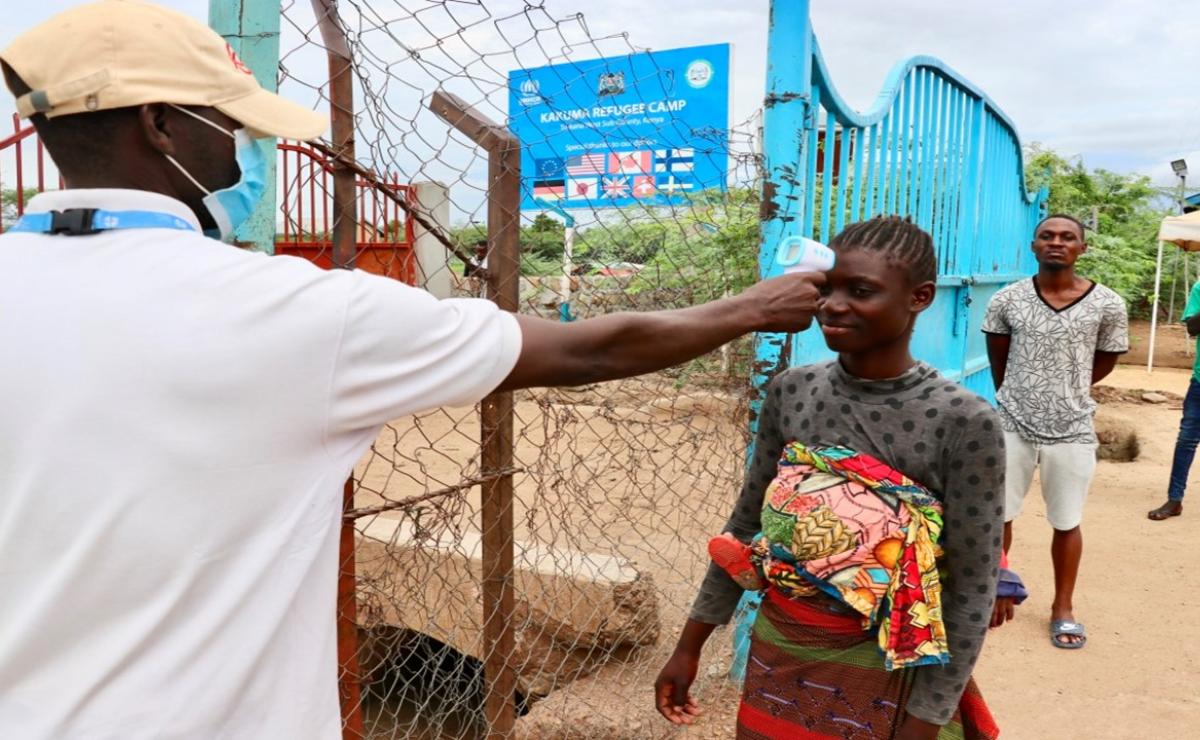COVID-19: PPE To Safeguard LWF Humanitarian Workers in Kakuma Refugee Camp

Contributing towards better preparedness and initial response to the COVID-19 pandemic.
Covid-19 presented a new challenge to humanitarian workers. It brought about stigma among the refugee community living in congested temporary homes in the Kakuma refugee camp. On March 12, 2020, the Ministry of Health in Kenya confirmed the first case of coronavirus disease (COVID-19) in Nairobi. Three months later, the United Nations High Commissioner for Refugees UNHCR recorded the first COVID-19 positive case in the Kakuma refugee camp.
LWF first responses to COVID-19 was implementing preventive measures such as social distance, provisions of handwashing stations and community sensitization on COVID-19.
Despite the continuous rise of positive cases and fear of being infected, LWF staff continued providing essential services without the necessary Personal Protective Equipment (PPE) required to prevent the virus's spread.
As cases increased, stigmatization among staff and the community began. More than ever, there was a growing need to support Humanitarian Aid Workers with PPE to ensure that they continued offering support services in the communities.
"Our team provides lifesaving services to the refugee and host community. Now more than ever, vulnerable communities needed our support. Despite that, we needed our team to be protected and feel confident as they continued working," Said Moses Mukhwana, Area Manager LWF Kakuma Program
To help the staff, the project facilitated PPE kits' procurement to ensure that Humanitarian Aid Workers working with LWF had access to the required protection gears. The PPE kits included sanitizers, face masks and gloves.
During the distribution of the PPE, drivers and staff working in quarantine centres were prioritized.
"The PPE were not only to protect the staff but also preventing the spread of the virus from the staff to the community we serve", Moses added.
The Evangelical Lutheran Church in America -ELCA funded the COVID 19 Preparedness and Response Project to facilitate Personal Protective Equipment (PPE) for LWF staff in the Kakuma Refugee Camp. This ensured that the staff were protected against exposure to COVID-19 and reduced the chances of transferring the virus to the persons of concern during service provision.
"Before the arrival of the PPE, we only had handwashing stations put in place. Staff were hesitant to provide one-on-one services such as psychosocial support, assessment to the new arrivals and serving food to the refugees in quarantine. There was a lot of stigmatization going on. Even the refugees were hesitant to receive the services," said John
John Ekamais is the officer in charge of the Reception and Transit Center in Kakuma. The UNHCR mandates LWF to manage the Nadapal Transit and the Kakuma Reception Centres. The Nadapal Transit centre is situated at the South Sudan and Kenya border.
The Reception centre acts as a central point where all refugees entering the camp have to pass through. Here the refugees are assessed, registered and given psychosocial support before being integrated into the camp. When the COVID-19 pandemic spread to the camp, LWF's health partners used the reception centre as a quarantine centre for refugees, including the new arrivals and asylum seekers.

